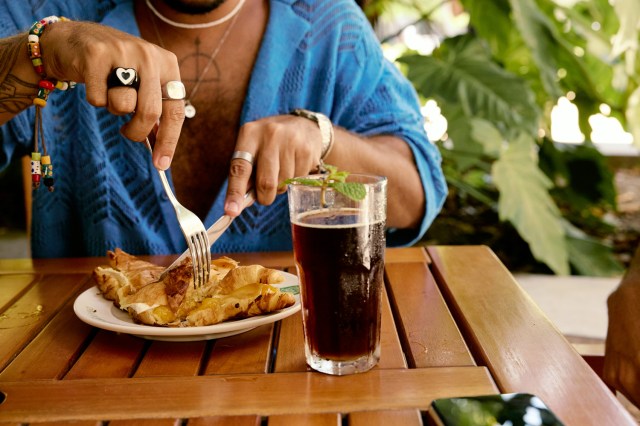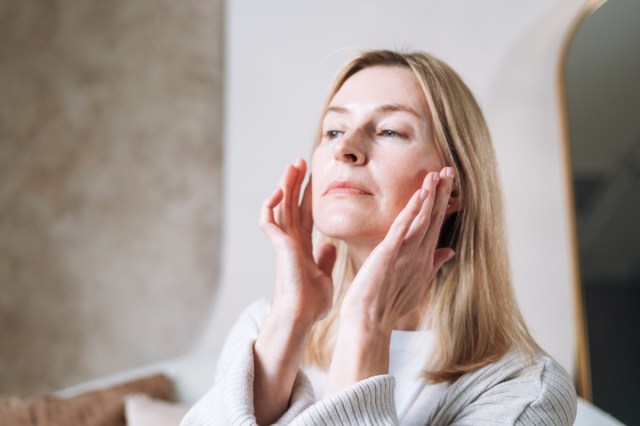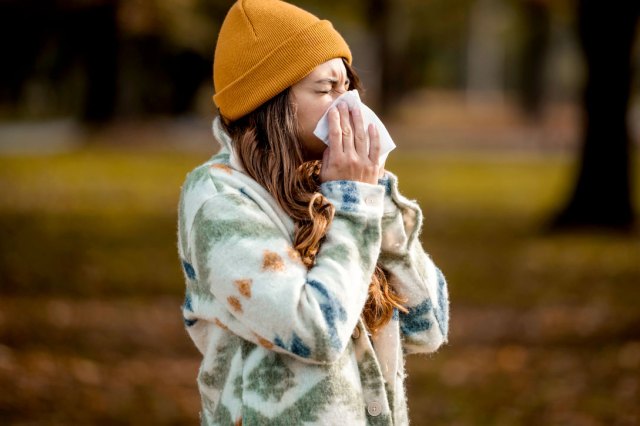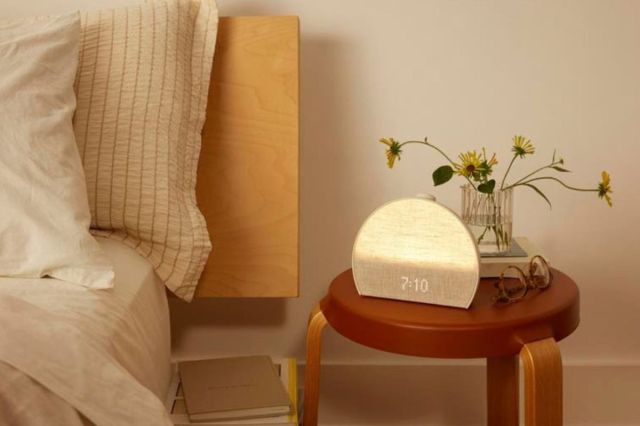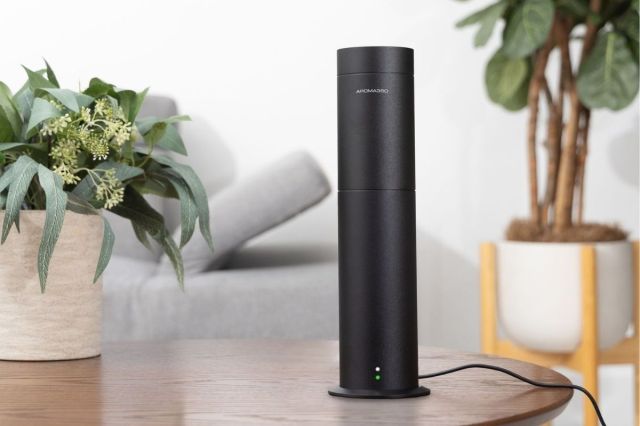We’ve been told all our lives that doing certain things will help us live longer. Eat plenty of vegetables. Avoid sugar. Drink lots of water. Exercise regularly. We can hear our mother’s voice right now. These habits are definitely more helpful than harmful, and longevity expert Dan Buettner agrees — kinda. He examined the regions with the longest-living populations in the world, where residents are 10 times more likely to reach the age of 100. These regions include the Barbagia region of Sardinia, Italy; Ikaria, Greece; Nicoya Peninsula, Costa Rica; Okinawa, Japan; and the Seventh Day Adventist community in Loma Linda, California. Buettner discovered nine common characteristics in these “Blue Zones.” Dubbed the “Power 9,” these “rules” don’t include fad diets, impossibly difficult workouts, or expensive wellness products — just small changes to your everyday routine.

Move Naturally: Don’t Overdo It
Blue Zone residents don’t rely on pricey gym memberships and robust workout schedules. Instead, they incorporate low-impact, frequent movement into their routine, such as gardening on the weekends, walking to the store or a friend’s house instead of driving, and enjoying hobbies that allow them to move their bodies. They’re also less likely to own power equipment and other mechanical tools for work around the house. To follow this mindset, try to make things less convenient (enticing, we know). Do your own yard work, take your pets or children for more walks, or bike instead of driving.

Purpose: Find Your “Why”
You can add up to seven years to your life simply by knowing your purpose. The Okinawans call this idea Ikigai, and the Nicoyans call it plan de vida. Both mantras refer to your “reason for being” or why you wake up in the morning. Research supports this theory, including one study in the Journal of the American Medical Association that showed people who have a stronger sense of purpose have a lower risk of all-cause mortality after age 50. By the end of the five-year study, participants with the lowest life purpose scores were twice as likely to have died than those with the highest scores. Remember, your purpose doesn’t have to be a career. It can be hobbies, volunteer work, and relationships, among other things.
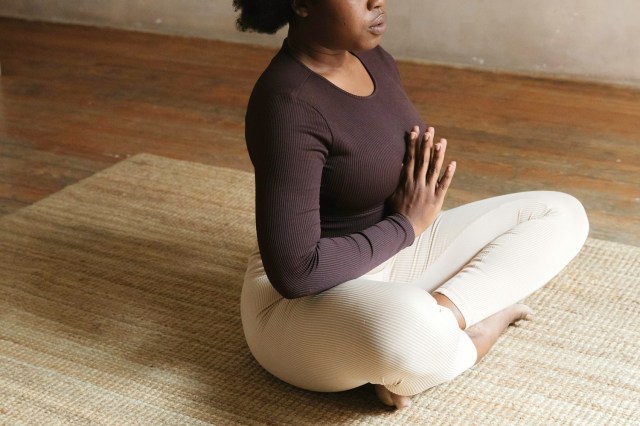
Downshift: Keep it Mellow
Everyone on Earth experiences stress, even Blue Zoners. Stress causes chronic inflammation, exacerbating existing health conditions and possibly leading to new health problems. While no one can live totally stress-free, centenarians incorporate more stress-reducing habits into their daily routines than others. Still, there isn’t one universal stress reducer. (If you know of one, please let us know.) People in Blue Zones use whatever method works best for them. Okinawans set aside a few minutes daily to remember their ancestors. Loma Linda’s Adventists pray. Ikarians take daily naps, while Sardinians head to happy hour.
Reader Favorites
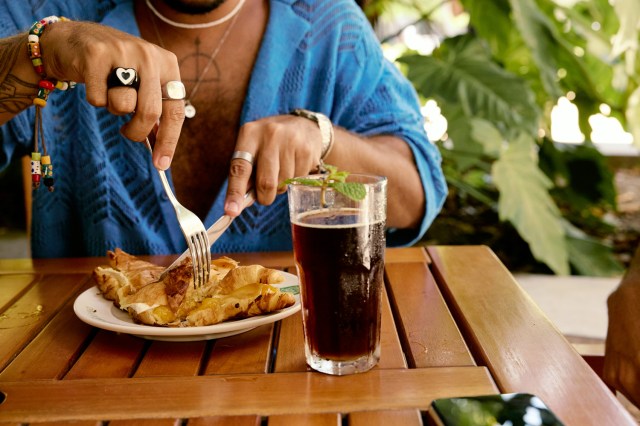
80% Rule: Measure Your Meals
You are what you eat — and in the case of Blue Zoners, you are how you eat, too. The 80% rule is based on a 2,500-year-old Confucian mantra, “Hara hachi bu,” which translates to “Eat until you’re 80% full.” This practice originated in Okinawa and is said to help maintain a healthy weight. Those who follow this habit stop eating when they begin to feel slightly full.
If you’re new to this method, ease into it simply by eating more slowly. It takes about 20 minutes to digest food, so if you eat too quickly, you might realize too late that you’re already full. This method can help both over- and under-eaters. On average, Blue Zoners eat their largest meal in the morning, their smallest in the late afternoon or early evening, and they avoid late-night snacking.
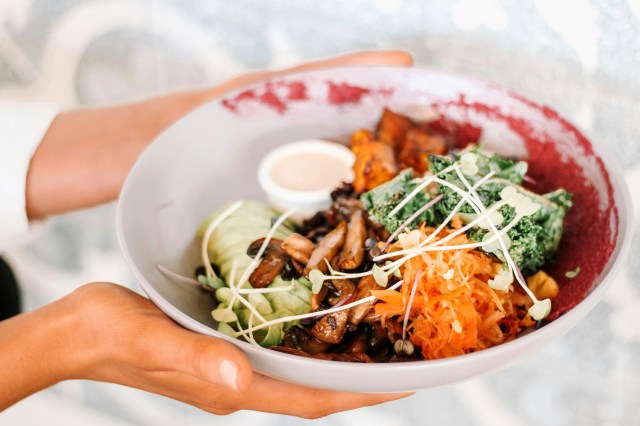
Plant Slant: Eat Your Greens
Now that we’ve tackled how centenarians eat, let’s move on to what they eat. The Blue Zone diet includes fresh fruits and vegetables, plenty of beans, and minimal meat. Beans are integral to the Blue Zone diet because they are nutrient-rich, providing ample fiber, folate, potassium, iron, magnesium, zinc, and calcium. They’re also heart-healthy and can lower the risk of type 2 Diabetes. Meat is only eaten an average of once a week on this diet, and serving sizes are very small, around 3 to 4 ounces. Many Blue Zone regions also follow a Mediterranean diet, which avoids processed foods, added sugars, and refined grains.
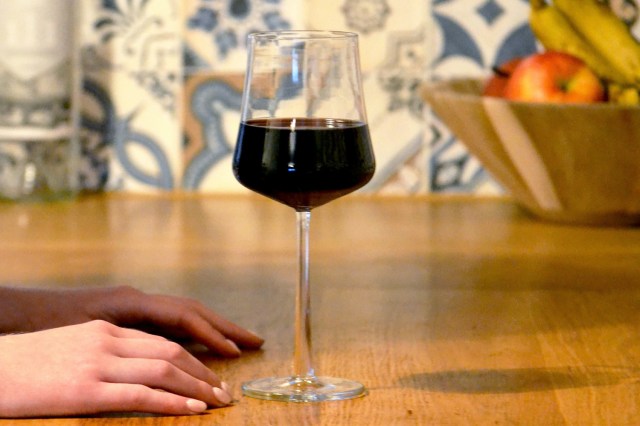
Wine at Five: Don’t Skip the Sip
You’ll be in good company at happy hour in a Blue Zone. All Blue Zones — except Adventists in Loma Linda — reported moderate and regular alcohol consumption. On average, these centenarians drink one to two servings daily in social settings with family, friends, and food. If your quest to live like a centenarian includes indulging in a drink, try Cannonau wine from Sardinia. It has two to three times more flavonoids (phytochemicals that lower blood pressure) than most other wines. But again, it’s important to maintain moderation and not overindulge, which can have adverse health effects.

Belong: Find Your Place
Being part of a community can increase your life expectancy. All but five of the 263 centenarians interviewed in the Blue Zone study are part of a faith-based community and regularly attend services. Research shows that attending faith-based services four times monthly can increase your life expectancy by four to 14 years. But you don’t need to participate in faith-based activities to be part of a community. Studies show a positive correlation between social activity frequency and overall survival in older people.
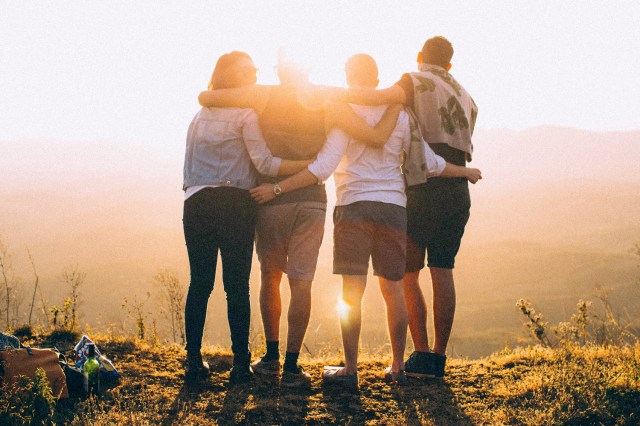
Loved Ones First: Family Matters
Centenarians across all Blue Zones were more likely to have close family relationships. This includes cultivating a healthy marriage, keeping aging family members close by or in the home, and having a close relationship with their children. These guidelines don’t require you to live Full House style with a dozen people under one roof, but harboring better relationships can work wonders for your health. Harvard University also acknowledges the connection between positive family relationships and living a longer life by reducing stress and depression, which can trigger all sorts of illnesses.

Right Circles: You Get What You Give
Having social ties is an undeniable part of life in Blue Zones — but having the right social relations is vital. This means surrounding yourself with a close social circle that supports healthy behaviors and discourages bad habits (while, in turn, doing the same for your friends). This encourages you to get out of the house, be social and active, and follow a healthy lifestyle, which are all fundamental values of centenarians.
Okinawans take this to the next level, forming moais, a group of five friends committed to each other for life. One moia that participated in the study had been together for 97 years — their average age was 102 — and they still met daily to enjoy each other’s company while gossiping and drinking sake.
Featured Image Credit: Natalia Blauth/ Unsplash+
More From Our Network
Better Report is part of Inbox Studio, an email-first media company. *Indicates a third-party property.
